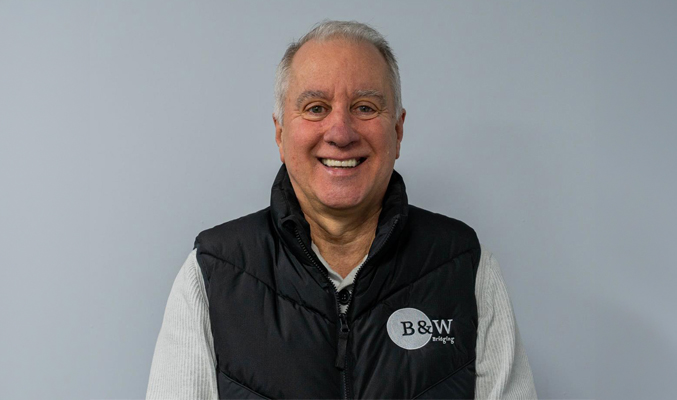2018 predictions for second charge loans
By Bridging Loan Directory
A clever person somewhere once said that the more expert a person in any given subject the less likely it is that their predictions will turn out to be correct. I just thought it would be prudent to get that in now as my future get-out clause.
So Happy New Year, and I hope that you had a restful break and are raring to go. The New Year breeds new optimism and with that comes new opportunities to serve your introducing brokers and their clients in ways that, to be fair, probably already existed in one shape or form but perhaps you are only just learning of them, or maybe you have found a niche to serve a particular client set in a new way. Fact is that if you go looking for the opportunities then you will undoubtedly find them.
Conversely, if you plan to do what you’ve always done then don’t be surprised to find that the outcome will not change. Your annual output will remain just the same this year as it did for the last one. You may just be fine with that; if you’re happy, are doing well and have satisfied clients then I salute you.
Some people though are unrestful souls and driving progress is the only way they know. Standing still and waiting for progress to occur around them is not for these people. I read this recently and I really like it:
The reasonable man adapts himself to the world; the unreasonable one persists in trying to adapt the world to himself. Therefore, all progress depends on the unreasonable man.”
Apart from modernising it a bit by exchanging ‘man’ for ‘person’ to keep everyone happy, I’d say this makes a lot of sense. Progression will occur whether you like/want it or not. One thing is for sure, second charge lending is set to grow further in 2018 as financial intermediaries become more aware of their existence and the industry’s well-known names introduce new products, integrated technology and forge growth as a result.
This year I expect to see consistent, strong growth from the sector but not the abundant growth that some brokers expected to land in their laps when the clock struck midnight on the day the FCA took over regulation of the sector. Some of the country’s brokers braced themselves for the ensuing onslaught of overwhelming levels of high quality business from mortgage networks and other sources, but of course it turned out to be fools gold and some are still licking their wounds. Growth comes from smart thinking and efficient application of ideas, from education of brokers and from identifying new ways to show customers that second charges can be a better solution in some circumstances. There are untapped sources of business and it remains for brokers to discover them. So how much growth? It wouldn’t be unfair to predict a 20% increase on the current output of around £1bn in 2017. It is likely that some new brokers and lenders will appear but mainly the growth will come from the established players (lenders and brokers) who are well placed to increase output at a higher rate.
More second charge lenders will begin to offer new product lines that synchromesh with their existing offerings. In particular I believe some will release specialist first charge mortgage products (as Together and Masthaven already have) in a bid to push the numbers up… and why wouldn’t they? This could eventually lead to a rate war, perhaps not in 2018, but perhaps next year; either way it will surely happen. Great news for brokers and their clients in the short-term, but a race to the bottom of the barrel would lead inevitably to what some like (and some don’t like) to refer to as product innovation, which will see some lenders playing about in riskier territories such as high LTV’s, increased commissions and heavier adverse credit. Other new second charge products could include hybrids of the current capital repayment and interest-only models to create some interesting new propositions.
Some existing and new lenders will start to adopt an electronic ‘black-box’ type underwriting engine (as opposed to an easy-to-copy-and-beat published product matrix) dishing out rates digitally and based on the individual merits of every application that goes through it. The fact is that the competition are blind to their product offering and do not know how to react.
Optimum Credit were the first secured lender to stump others with this approach, and one that has seen them rise to meteoric heights in just a few years. Black-box style lenders have an uncanny ability to adopt large volumes of traffic by integrating their systems with brokers and getting the lions share of applications first, in a move akin to a stealth bomber flying under the radar and surprising all and sundry as it arrives late to the party and walks away with the best-looking ladies.
Broker fees were made a contentious issue by some in 2017, and although in the specialist mortgage market, competition has menat that fees have reduced somewhat, it is unlikely they will see any further reductions this year. Despite what some would have you believe, the amount of work that goes into a specialist finance deal compared with a mainstream mortgage deal is worlds apart. The cost of experienced staff with the knowledge to correctly underwrite, place and process specialist applications is increasing constantly; they are a rare commodity in comparison to a high street mortgage broker. That’s why there are around 80 specialist brokerages and 10,000 mainstream brokerages.
In addition to this, when the money is removed from the deal by a packager, introducing brokers see little value in referring applications to them and they simply take their business elsewhere. Some packagers have redcued their fees Broker fees so that the onus is placed on the introducers themselves to charge their client a fee. Mortgage brokers do not like asking their clients for a fee, on a case they have referred to a specialist; they would prefer the specialist broker to deal with that side of things and then pass the money on to them. Several large specialist brokers have learned this lesson the hard way in recent years.
Broker fees are set by a three-way understanding between the introducing broker, the packaging broker and the client. If the client is not happy with the fee they will vote with their feet. It’s worth remembering that markets in a capitalist society have an uncanny ability to find their own equilibrium and no amount of soapboxing is likely to change it. The packaging broker has to make a profit relevant to the size of his organisation and the number of people employed otherwise it wouldn’t be worth the pain, and specialist brokers would disappear, leaving thousands of customers without the funds they need. The knock-on effects of this would be profound and obvious.
Innovation in technology is exponential and despite our industry being fairly slow in this area, we brokers are developing and integrating with lenders faster than ever before. There will be some very interesting offerings this year from the tech companies that serve our industry who all have grand plans to disrupt the market with new tech that will benefit the whole specialist finance sector. The two market leaders have brought their second charge offerings to market (although they leave a lot to be desired) but others are hot on their heels.
The race is on to create the integrated technology that will continue the drive to remove ‘pain points’ in secured lending through the development of application programming interfaces. Almost like the ‘internet of things’ for the financial marketplace where everyone who has something good to offer can link it with someone else who also has a compelling offer. In such a co-dependant ecosystem, the more lenders and brokers and AVM providers and credit reference agencies and land registry and e-ID providers, etc., that are interlinked in a way that is efficient and useful and can be presented in a smooth user-friendly interface, the more likely such a product will succeed and the faster and more efficiently brokers will be able to operate. Certainly more useful than linking your toaster to your microwave, don’t you think?
Whatever your plans for 2018, I wish you every success and I sincerely hope that our paths will cross through a Specialist Mortgage Group business.
Matt Cottle is Chief Executive Officer at Specialist Mortgage Group











You must be logged in to post a comment.